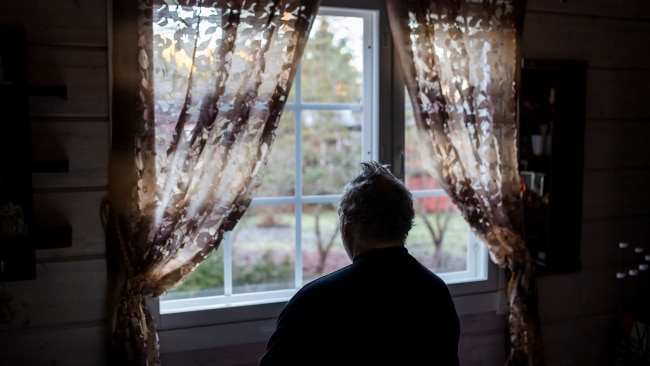New review reveals COVID-19 pandemic's toll on depression and anxiety, as Australia faces looming mental health crisis
The review, which screened over 6,000 individual pieces of research from across the globe, found psychological distress was still above pre-pandemic levels.

A first of its kind study has revealed the true magnitude of the COVID-19 pandemic's toll on mental health, with experts calling for urgent action to avoid placing Australians at a long-term disadvantage.
The review, which screened over 6,000 individual pieces of research from across the globe, found psychological distress was still above pre-pandemic levels.
The research was published in Frontiers of Psychiatry on Thursday, and led by the University of Sydney’s Matilda Centre for Research in Mental Health and Substance Use, in collaboration with the Australian National University’s Centre for Mental Health Research.
Findings show anxiety and depression affected 24.4 per cent and 22.9 per cent of the general population, while rates soared to 41.1 per cent and 32.5 per cent in vulnerable groups.

About 39.1 per cent of the population experienced stress, 44.2 per cent reported psychological distress, and 18.8 per cent had symptoms of Post Traumatic Stress Disorder.
The study found adverse mental health effects were higher among adolescents, pregnant and post partum women, and those hospitalised with COVID-19.
The paper's senior author, Professor Maree Teesson, said while Australians wanted to believe in a return to normal following the pandemic, the data on increased levels of mental ill health was "hard to ignore".
“What worries me is that rather than having an intense recovery phase in Australia we’ve had further crises, including marked increases in costs of living and natural disasters, all of which we know exacerbate mental health problems,” Prof Teeson said.
Co-lead author and University of Sydney PhD student, Scarlett Smout, said urgent action was needed before the crisis escalates.
“If we don’t act to implement holistic strategies now, particularly for young people, we risk having a whole generation at a long-term disadvantage,” she said.
Australia’s Mental Health Think Tank in May last year released the Youth Recovery Plan which made several recommendations on how to address the mental health impacts of COVID-19 and other crises on young people.

They include addressing key drivers of poor youth mental health; financial stress, disconnection and lack of access to mental healthcare.
While the federal government adopted one of the plan's recommendations by increasing the number of Commonwealth supported places for mental health-related degrees, Professor Teeson said more needed to be done.
“There have been no meaningful changes to income support schemes such as Youth Allowance and Jobseeker, aside from a $1.77 per day increase to keep up with inflation, despite skyrocketing costs of living,” she said.
The umbrella review is the first of its kind to provide a holistic overview on the mental health impacts of COVID-19 based off a wide range of international mental health research conducted during the pandemic.
The paper's authors suggest more research is needed into sub-groups likely affected by restrictions and lockdowns such as children and people experiencing housing issues, as well as into the impact of vaccination on mental health.
